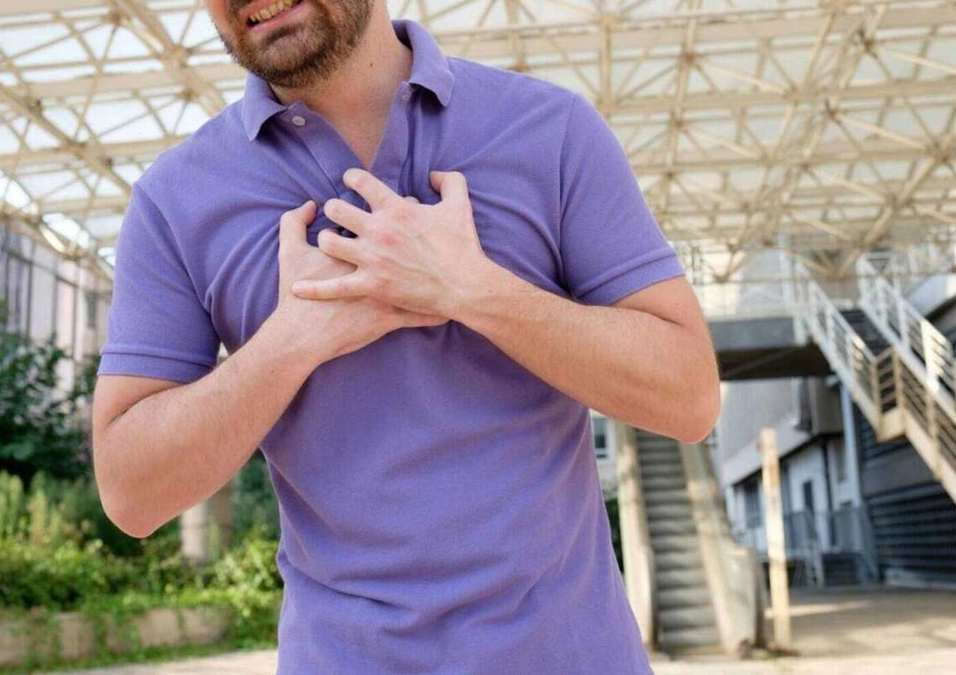Younger Stroke Patients

SIGN UP FOR YOUR FREE DAY PASS TODAY!
Doctors are increasingly concerned about the growing number of young individuals experiencing strokes in the UAE.
Each year, approximately 9,000 to 12,000 residents suffer from strokes, with half of these cases occurring in individuals under 45 years old—20 years younger than the global average age of 65, according to the Sheikh Khalifa Stroke Institute (SKSI).
Recently, two cases were recorded at Zulekha Hospital Sharjah. One involved a 45-year-old man managing diabetes through medication.
He was a smoker and suddenly felt weakness on the left side of his face and arm. After clinical and radiological examinations, he was diagnosed with an acute stroke, treated, and subsequently recovered.
Another patient, aged 42, had uncontrolled hypertension and suffered from obstructive sleep apnea and an irregular diet.
His sedentary lifestyle led to recurring minor strokes. With stenosis detected in a major brain artery, he showed complete improvement after optimal treatment.
Doctors have noted that both patients had unmanaged stroke risk factors exacerbated by their inactive lifestyles.
Strokes Can Be Prevented
Strokes are the second leading cause of death in the UAE, following heart attacks, and a major cause of permanent disability.
A stroke occurs when blood flow to the brain is blocked, often by a clot, leading to rapid brain cell death and resulting in stroke symptoms.
“However, strokes can be prevented,” said Dr. Sandeep Burathoki, a consultant interventional radiologist at International Modern Hospital Dubai, in an interview with Khaleej Times.
He explained that stroke symptoms include sudden limb weakness, speech difficulties, or trouble finding words, and difficulty using hands or legs.
If patients reach a hospital or stroke center within four and a half hours, the clot can often be dissolved with medication, known as clot busters.
“Advances in endovascular treatment enable the removal of clots from the brain using specialized metallic mesh (stent) or vacuum pumps, with treatment options available up to eight hours after stroke onset, and in some cases, up to 24 hours,” he said, emphasizing that “stroke prevention is possible in 50 to 80 percent of cases with lifestyle changes, which is crucial.”
Focus on Younger Generations
Dr. Gene Ann Thomas, a specialist neurologist at Zulekha Hospital Sharjah, commented, “A large portion of the UAE population is young, making the high incidence of strokes in this demographic particularly concerning.”
“Similar to other lifestyle disorders that have increased in recent decades, strokes are associated with modifiable factors such as inactivity, diet, and work stress.
Recently, Covid-19 has also been linked to vascular events like strokes and heart attacks. Smoking further amplifies stroke risk," she added.
“Given the significant morbidity and mortality rates among young stroke patients, it is vital to emphasize diet, exercise, and risk factor management starting with younger generations,” she stressed.
Dr. Bahareh Bazooyar, a specialist neurologist at Canadian Specialist Hospital Dubai, also pointed out “the troubling trend of younger stroke patients in the UAE, with the average onset age now being 45.”
She observed, “The country's highly urban environment fosters a fast-paced lifestyle, often leading to stress, inactivity, and reliance on high-calorie diets, increasing the risk of high blood pressure and diabetes in younger individuals.”
“There should be heightened awareness and early screenings to detect risk factors more frequently in younger age groups,” she suggested.
Technology and AI in Stroke Prevention
Dr. Victor Urrutia, professor of clinical neurology and director of the Sheikh Khalifa Stroke Institute (SKSI), noted the role of technology and AI in identifying risk factors and future stroke treatments.
He told Khaleej Times, “We are expanding hospital reach through telemedicine to ensure even distant hospitals can identify and treat strokes immediately.”
“We have collaborated with local healthcare staff to enhance the stroke care system. Notably, we assisted Tawam Hospital in becoming a comprehensive stroke center and have visited the Al Dhafrah region to prepare hospitals for stroke treatment,” added Dr. Urrutia, who also directs Johns Hopkins Hospital’s Comprehensive Stroke Centre.
Dr. Anoop Narendran, a specialist neurosurgeon at Medcare Royal Specialty Hospital, advised, “People should adopt preventive measures to lower stroke risks.
Regular health checkups to monitor blood pressure, blood sugar, and cholesterol levels can help identify and manage risks early.”
“In addition to this, maintaining a healthy diet, exercising regularly, staying hydrated, and managing stress are essential,” he added, warning that strokes can be dangerous as they often occur without warning signs.
He also cautioned against overlooking strokes that resolve on their own.
“Some patients experience what is known as a transient ischemic attack (TIA), where stroke symptoms appear and disappear quickly, yet they have a heightened risk of a full stroke in the following 30 to 90 days, with some facing increased risk within 48 hours.
Just as we recommend going to the emergency department for stroke symptoms, those with transient symptoms should also seek immediate medical attention,” he concluded.
Source: khaleejtimes
The opinions shared in the GymNation blog articles are solely those of the respective authors and may not represent the perspectives of GymNation or any member of the GymNation team.































































